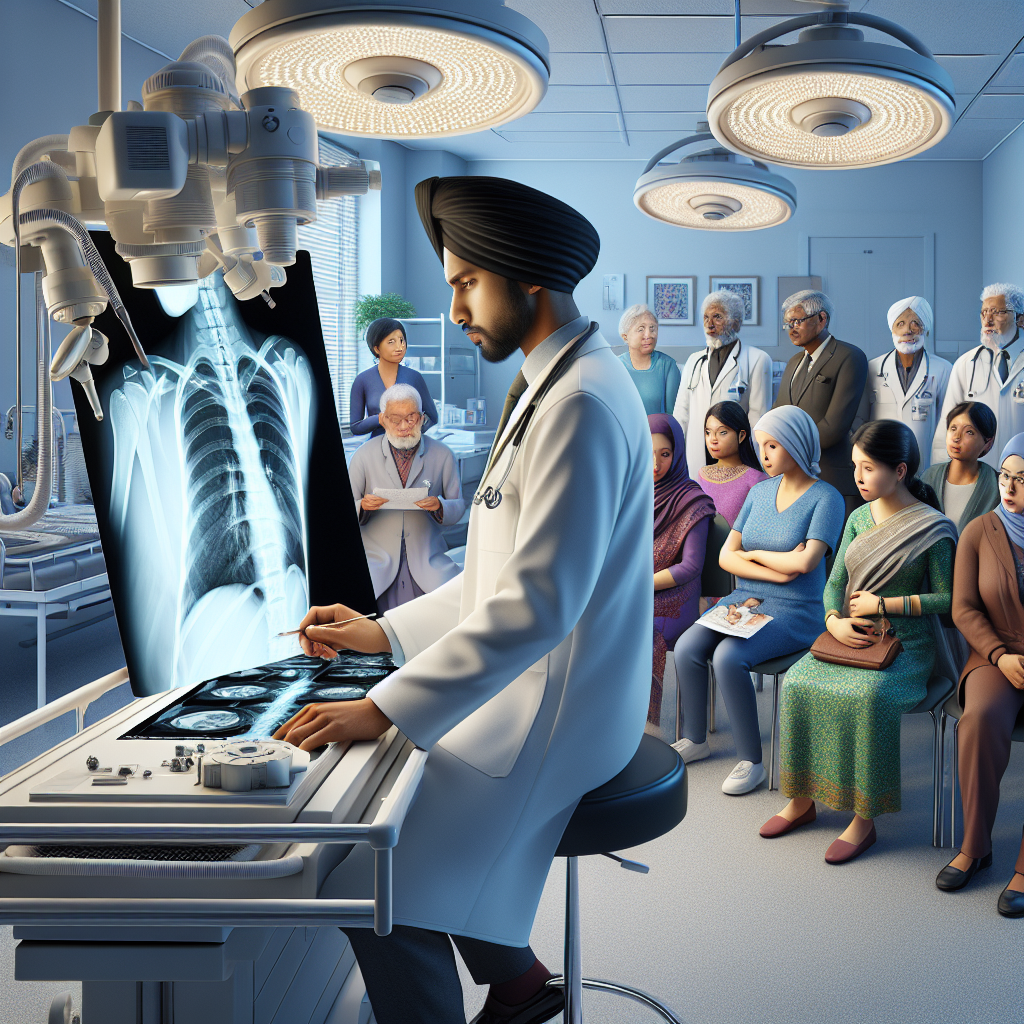Introduction
In the world of modern healthcare, radiology services play a crucial role in aiding accurate diagnosis and effective treatment plans. These services utilize state-of-the-art imaging technology to provide physicians with detailed insights into the internal structures of the human body. From X-rays to MRI scans, radiology procedures have revolutionized the way medical professionals approach patient care.
Table of Contents
- What is Radiology?
- Types of Radiology Services
- Importance of Radiology Services
- Common Radiology Procedures
- FAQs about Radiology Services
- Conclusion
What is Radiology?
Radiology is a branch of medicine that focuses on the use of medical imaging technologies to diagnose and treat diseases. These technologies include X-rays, computed tomography (CT), magnetic resonance imaging (MRI), ultrasound, and nuclear medicine. Radiologists are specialized physicians who interpret the images produced by these technologies and provide diagnostic reports to other healthcare professionals.
Types of Radiology Services
Radiology services encompass a wide range of imaging techniques and procedures. Here are some common types of radiology services:
X-ray:
X-rays are the oldest and most widely used form of radiology. They use low-dose radiation to produce images of bones, joints, and internal organs. X-rays are particularly useful in diagnosing fractures, pneumonia, and certain types of tumors.
Computed Tomography (CT):
CT scans use a combination of X-rays and computer technology to create detailed, cross-sectional images of the body. They provide a more comprehensive view of the internal structures and are commonly used to diagnose conditions such as tumors, heart disease, and internal bleeding.
Magnetic Resonance Imaging (MRI):
MRI scans use a powerful magnetic field and radio waves to generate detailed images of the body’s soft tissues. They are especially useful in diagnosing conditions affecting the brain, spinal cord, joints, and muscles. MRI scans are non-invasive and do not use ionizing radiation.
Ultrasound:
Ultrasound imaging uses high-frequency sound waves to create real-time images of the body’s organs and tissues. It is commonly used in obstetrics to monitor fetal development, as well as in diagnosing conditions affecting the abdomen, pelvis, and blood vessels.
Nuclear Medicine:
Nuclear medicine involves the use of small amounts of radioactive substances to diagnose and treat diseases. It includes procedures such as positron emission tomography (PET) scans and bone scans. These tests provide information about the functioning of organs, detect tumors, and evaluate the effectiveness of treatment.
Importance of Radiology Services
Radiology services are essential in modern healthcare for several reasons:
- Accurate Diagnosis: Radiology procedures provide detailed images that aid in the accurate diagnosis of various medical conditions. They help identify abnormalities, tumors, fractures, and other internal injuries that may not be visible on the surface.
- Early Detection: Radiology services enable the detection of diseases at an early stage, allowing for prompt intervention and better treatment outcomes. Conditions such as cancer, heart disease, and neurological disorders can be diagnosed at an early stage, increasing the chances of successful treatment.
- Non-Invasive and Minimally Invasive: Many radiology procedures are non-invasive or minimally invasive, reducing the need for invasive surgeries. This leads to faster recovery times, fewer complications, and improved patient comfort.
- Guiding Treatment Plans: Radiology reports play a crucial role in guiding treatment plans. They provide valuable information that helps physicians determine the most appropriate course of action, whether it is surgery, medication, or other forms of therapy.
- Monitoring Treatment Progress: Radiology services are also used to monitor the progress of ongoing treatments. Follow-up scans can reveal changes in tumor size, the effectiveness of chemotherapy, and the healing of fractures, ensuring that the chosen treatment approach is working as intended.
Common Radiology Procedures
Here are some of the most common radiology procedures and their applications:
X-ray:
- Diagnosing fractures and dislocations
- Detecting lung infections and diseases
- Assessing the progress of dental treatments
CT Scan:
- Identifying and evaluating tumors
- Detecting internal bleeding and injuries
- Assessing the severity of brain injuries
MRI Scan:
- Diagnosing brain and spinal cord conditions
- Evaluating joint and musculoskeletal disorders
- Detecting breast and prostate cancer
Ultrasound:
- Monitoring fetal development during pregnancy
- Evaluating abdominal and pelvic conditions
- Assessing the blood flow in blood vessels
Nuclear Medicine:
- Detecting and staging cancer
- Evaluating heart function and blood flow
- Determining the extent of bone diseases
FAQs about Radiology Services
Q: Are radiology procedures safe?
A: Yes, radiology procedures are generally safe. However, it is essential to discuss any potential risks with your healthcare provider, particularly if you are pregnant or have certain medical conditions.
Q: How long does a radiology procedure take?
A: The duration of a radiology procedure depends on the type of scan and the area being examined. Some scans, such as X-rays, can be completed within minutes, while others, like MRI scans, may take up to an hour.
Q: Do radiology services require a referral from a doctor?
A: In most cases, radiology services require a referral from a healthcare provider. This ensures that the procedure is necessary and appropriate for your specific condition.
Q: Will I experience any discomfort during a radiology procedure?
A: The level of discomfort during a radiology procedure varies depending on the type of scan and your individual tolerance. Most procedures are painless, although some may involve mild discomfort or temporary side effects.
Conclusion
Radiology services are an integral part of modern healthcare, providing invaluable insights into the human body and aiding in accurate diagnosis and effective treatment plans. From X-rays to MRI scans, these procedures help detect diseases at an early stage, guide treatment decisions, and monitor the progress of ongoing therapies. With their non-invasive nature and ability to capture detailed images, radiology services have revolutionized the medical field, ensuring better patient outcomes and improved quality of life.




